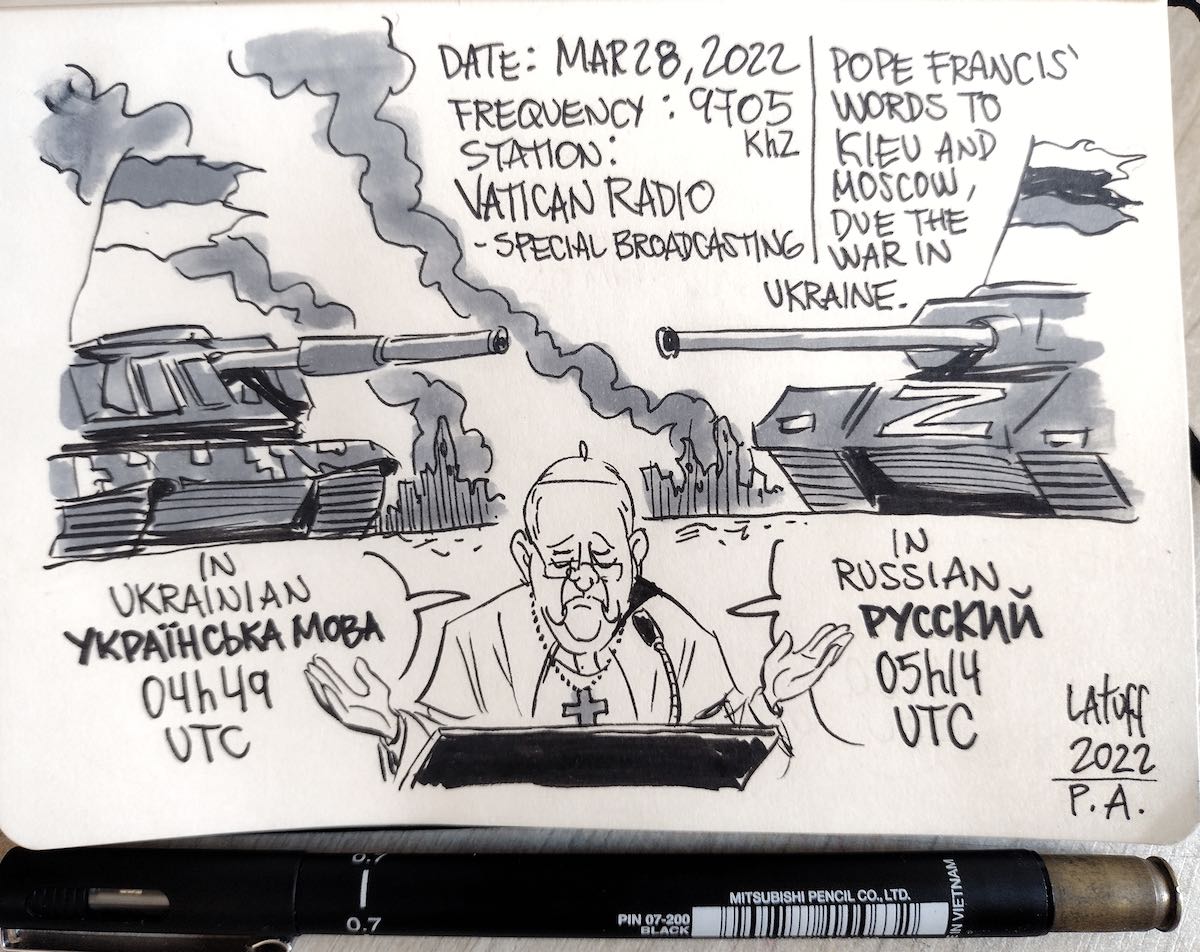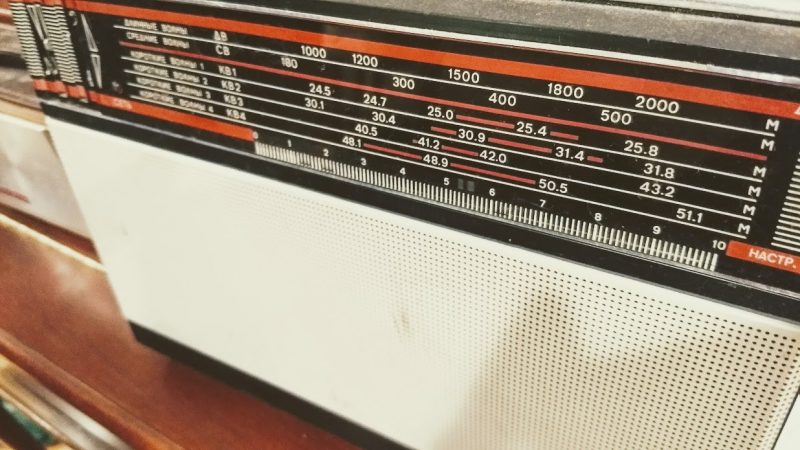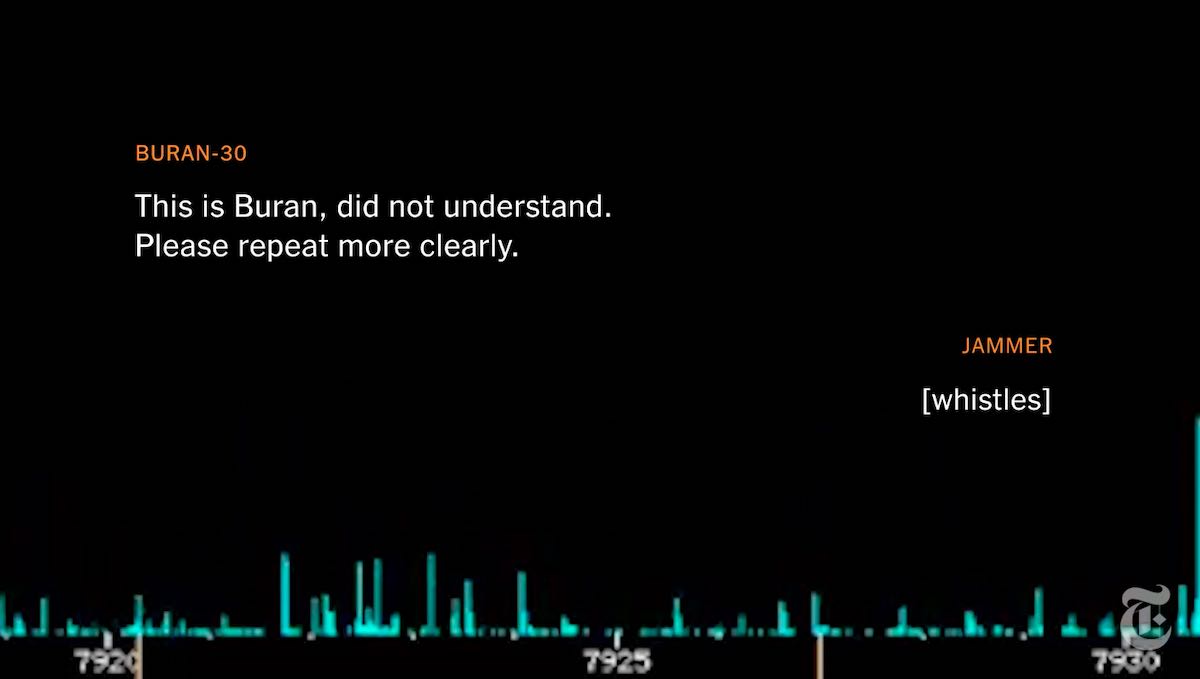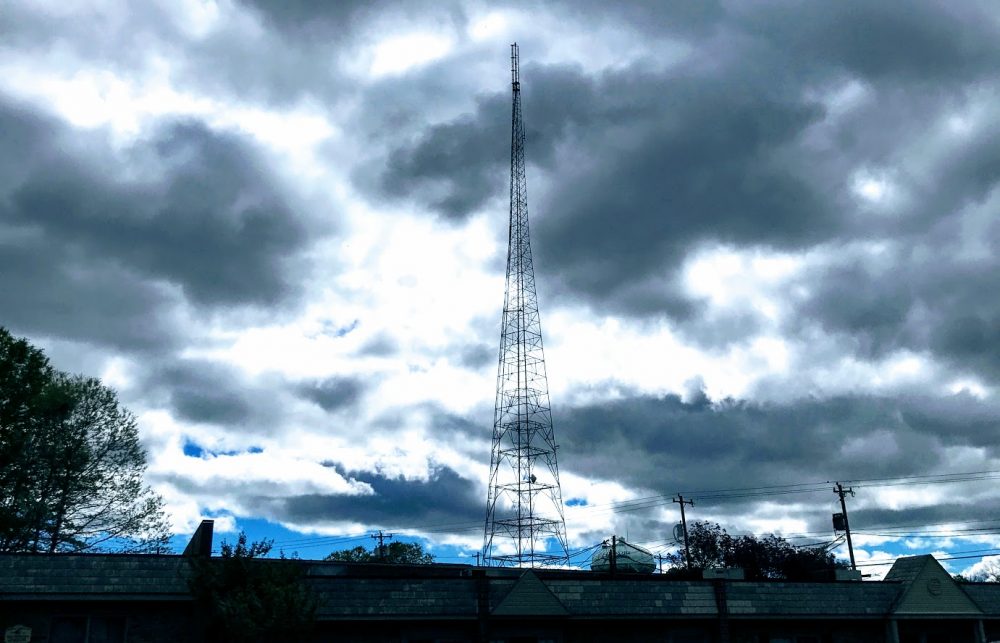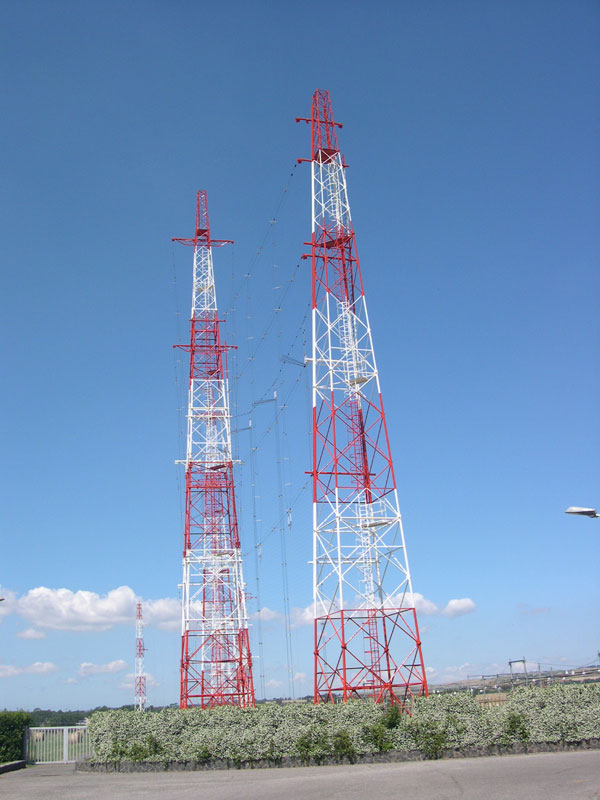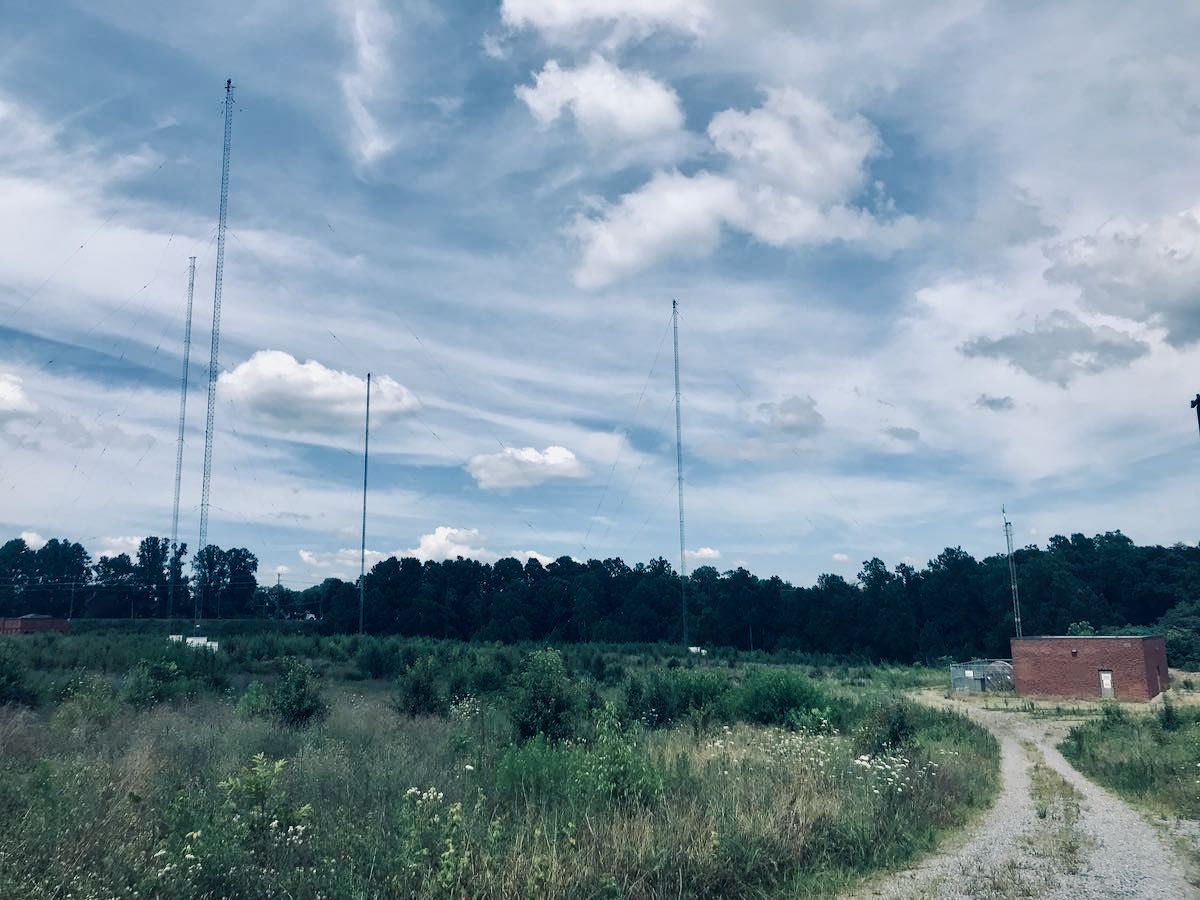
Radio Waves: Stories Making Waves in the World of Radio
Because I keep my ear to the waves, as well as receive many tips from others who do the same, I find myself privy to radio-related stories that might interest SWLing Post readers. To that end: Welcome to the SWLing Post’s Radio Waves, a collection of links to interesting stories making waves in the world of radio. Enjoy!
The BBC World Service will receive more than £4m in extra funding from the UK government to help counter disinformation about the Ukraine war.
The BBC made the request for the money, which will also be used by the Ukrainian and Russian language services to cover urgent and unexpected costs.
It welcomed the announcement and said the money would help relocate staff and operations to safe locations.
The two language services have had record audiences since the invasion.
The announcement on Wednesday followed a BBC request to the Department for Digital, Culture, Media and Sport and the Foreign Office.
“The BBC has seen a big demand for clear, fact-based, impartial journalism to counter disinformation and our teams are working around the clock to bring people the very best independent journalism,” BBC director general Tim Davie said.
“This funding will also help us with the immediate need to support staff who have been displaced, many of whom are continuing to work and provide vital expertise to the whole of the BBC,” he added. [Continue reading…]
£4.1 million in additional funding for BBC World Service to support Ukrainian and Russian language services in the region
The government is giving the BBC World Service emergency funding to help it continue bringing independent, impartial and accurate news to people in Ukraine and Russia in the face of increased propaganda from the Russian state.
BBC World Service will receive an additional £4.1 million in emergency funding to support its Ukrainian and Russian language services in the region, and to help it increase trusted and independent content to counter disinformation about the war in Ukraine.
BBC World Service channels – including TV, radio and digital – play an increasingly valuable role in challenging the Kremlin’s disinformation, but it is facing additional costs from operating within a military conflict and due to a crackdown on independent reporting in Russia.
Following a BBC request, the Department for Digital, Culture, Media and Sport and Foreign, Commonwealth and Development Office will provide the extra funding to cover urgent and unexpected costs that have arisen as a result of the conflict.
This will help the BBC to relocate staff and operations to safe locations to ensure the resilience of their services and that they continue to reach people in Russia and Ukraine.
The BBC will also use the funding to continue expanding new and more widely accessible content, delivered through a range of channels, to tackle disinformation and to help local audiences circumvent the Kremlin’s media restrictions and continue to access the BBC’s journalism.
Culture Secretary Nadine Dorries said:
The Government is providing the BBC with an additional £4.1 million in emergency funding to help the World Service broadcast directly into Ukraine and Russia.
In scenes reminiscent of 80 years ago, the BBC will ensure that audiences in the region can continue to access independent news reporting in the face of systemic propaganda from a dictator waging war on European soil. It’s vital we lift the veil on and expose the barbaric actions of Putin’s forces.
Minister for Europe and North America, James Cleverly said:
Britain is calling out Putin’s lies and exposing his propaganda and fake news.
This new funding will help strengthen the BBC’s impartial voice in Russia and Ukraine, which is critical to counter Russian disinformation and will help ensure we win the battle for the airwaves.
ENDS
Notes to Editors
The World Service receives funding from the BBC’s licence fee income, in addition to grant funding directly from the FCDO. The World Service’s Spending Review settlement for the period 2022 to 2025 from the FCDO will be confirmed shortly.
The Culture Secretary made it clear to the BBC in her letter confirming the final licence fee settlement that the BBC should continue to make a substantive investment from the licence fee into the World Service to ensure that it continues to effectively reflect the United Kingdom, its culture and values to the world – in English and through its language services.
Radio Miami International (WRMI)? is working with Shortwaves for Freedom to transmit news to Russia and Ukraine during the war.
OKEECHOBEE, FL — When the commercial shortwave radio station Radio Miami International — which operates under the call letters WRMI — got its start in 1989, its primary focus was helping Cuban exile groups in Miami legally transmit programming to their homeland.
Since then, the station has broadcast news during all sorts of trying times — the Gulf War, hurricanes, earthquakes, other natural disasters.
Now, 30 years later, at a time when Instagram, TikTok and other social media platforms rule when it comes to communication, WRMI finds itself in a unique position during Russia’s invasion of Ukraine. Working with several organizations and government groups, the station is broadcasting news programming to both Russians and Ukrainians who have access to shortwave radios.
“We’ve been through all sorts of crises. This is one of the biggest,” said Jeff White, the station’s general manager.
When the station launched three decades ago, Radio Miami International worked with Cuban exiles and Latin American groups to find existing shortwave stations where they could buy airtime to broadcast shows. [Continue reading…]
The Lvivska Khvylya local radio station in west Ukraine changed its broadcast output dramatically the day Russia invaded the country.
The first thing staff did was to ease off on the entertainment programming and ramp up coverage of the war for their tens of thousands of listeners. Continue reading →

